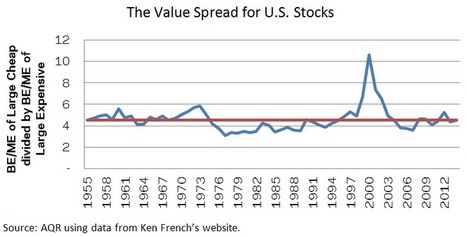Some assert that once a strategy is “discovered” it can’t work anymore. Others, often implicitly, assume the future will look as wonderful as the past. Perhaps not surprisingly, we stake out a middle ground. We’re going to argue that certain well-known classic strategies that have worked over the long term will continue to work going forward, though perhaps not at the same level and with different risks than in the past.[1] We will focus on classic “factor”-type strategies.[2] Our favorites won’t shock anyone. They are things like value, momentum, carry and quality/defensive.[3] Of these, we’ll use value investing as a common example throughout this discussion.
We don’t consider these classic strategies to be “alpha” in the traditional sense. However, there can be better or worse versions of them, and creating new, better versions is certainly a form of alpha (this can lead to great semantic battles).[4] Still, to be real alpha something has to be known to only a modest number of people/organizations (one being optimal). By this definition, classic strategies defined in well-known ways don’t fit. But, presumably sometime in the past, when they were much less well-known, they were indeed at least closer to “alpha” in all senses of the word. This brings us to the title question — now that they are “classics” and known to many, why should they still work?



 Your new post is loading...
Your new post is loading...







